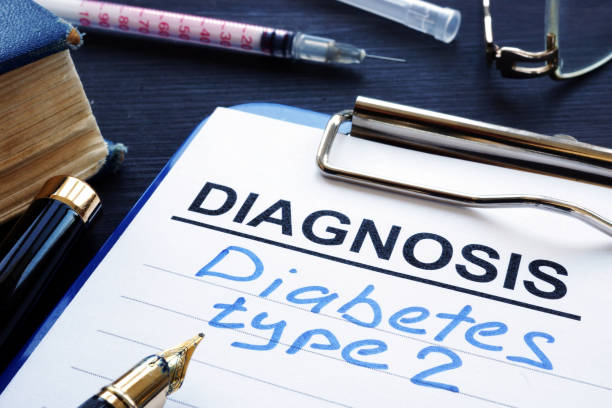Healthy Food According to Scientists
Healthy food is defined as food that the body requires to function normally. A nutritious diet leads to a stronger body.
The more frequently someone consumes healthy foods on a daily basis, the greater the possibility for disease reduction.
Nutritionists believe that a healthy and balanced diet is beneficial to one’s health and can help prevent a variety of ailments.
It is critical to understand how to provide a nutritious food to youngsters.
Nutritionists provide knowledge on the necessity of balanced nutrition and a healthy diet so that children can grow and receive adequate nutrients.
Parents must consider a variety of factors while delivering nutrition to their children. Experts offer the following tips for healthful foods:
- Starting with protein intake. Protein consumption is the most crucial thing to monitor in children because it is the primary nutrient required by the body to produce muscles, skin, hormones, and cells and tissues. Some protein-rich foods include eggs, lean meat, milk, broccoli, lentils, shrimp, and other shellfish.
- Consume healthy fats. Fats are classified into two types: monounsaturated fats and polyunsaturated fats (such as omega-3 fatty acids). The recommended daily consumption of healthy fats ranges from 50 to 80 grams. Avocados, almonds, vegetable oils, peanut butter, salmon, and tofu are all examples of foods with healthy fats.
- Consume dairy products. Yogurt, for example, is a dairy product rich in animal protein, calcium, potassium, vitamin B2, vitamin B12, and magnesium, all of which are beneficial to endurance and digestive health.
- Consume complex carbs like rice, pasta, bread, broccoli, seeds, and others because they provide wonderful energy for your body.
- Fiber is highly recommended for maintaining digestive health, particularly in the intestines. A healthy daily fiber intake for women is around 25 grams, and for males, 38 grams.
The Importance of Eating a Healthy Diet for Children to Have an Ideal Body
As a student who knows the importance of children’s health from an early age, I recognize that developing healthy eating habits is one of the most important aspects in promoting optimal child growth and development.
A well-balanced diet is essential for meeting the body’s daily nutritional requirements for growth.
Carbohydrates, proteins, healthy fats, vitamins, and minerals must be tailored to the child’s age to ensure that body weight remains within the optimal range while also supporting brain function and the immune system.
Furthermore, adopting healthy eating habits can help to prevent a variety of health issues, including obesity, malnutrition, and metabolic illnesses, all of which can interfere with a child’s growth and development.
On the other hand, a nutritious diet has a good effect on children’s cognitive abilities.
Adequate and well-balanced nutrition improves concentration, cognitive abilities, and memory, all of which are critical components of learning.
As a result, parents play a vital role in introducing nutritious foods while restricting the consumption of processed foods high in sugar, salt, and saturated fat.
As the younger generation, we must also educate the public about the value of a healthy lifestyle in general, which includes food, regular exercise, and cleanliness, so that children can develop into healthy, energetic, and passionate persons who like living their lives.
The Impact of Junk Food on Children’s Health
Currently, the effect of junk food consumption on children’s health is a serious and worrying issue. This is very important to pay attention to and be aware of. Here are some instances of the negative impacts of junk food:
Childhood Obesity
Junk food is abundant in calories, sugar, salt, and saturated fat, which causes excess weight and can contribute to diabetes and hypertension.
Risk of Chronic Disease
Eating junk food on a regular basis raises the risk of developing diseases like type 2 diabetes, heart disease, and high cholesterol.
Growth Restrictions
Junk food’s low protein, vitamin, and mineral content means that children’s nutritional needs are not satisfied, which stunts physical growth and brain development.
Weakened Immunity
The sugar and trans fat levels in junk food might impair children’s immune systems, making them more vulnerable to disease.
Digestive Issues
Because junk food is poor in fiber, it can lead to constipation and other digestive problems.
Lack of Energy and Fatigue
Children who eat junk food on a regular basis tend to be weak due to vitamin deficiencies.
Skin and Organ Disorders
Excessive intake can cause skin problems, organ damage, and an increased risk of chronic diseases later in life.
The habit of eating junk food has a negative impact on children’s general health. It is important for parents to ensure that their children receive healthy, balanced nourishment from a young age.
Strengthening Healthy Eating Patterns in Children Starts at Home
The family plays an important role in reducing the detrimental effects of junk food on children.
Because the home is the primary setting for the development of children’s eating habits, efforts to teach healthy eating patterns must begin with the most immediate environment, namely the family. Here are a few steps you can take:
Set a Good Example
Parents must set a good example for their children by eating healthily.
Provide Healthy Food at Home
Prioritize vegetables, fruits, protein, and complex carbohydrates, while limiting sugary and salty snacks.
Regular Meal Schedule
Get your youngster acclimated to eating three times a day, with two nutritious snacks, so they don’t buy snacks impulsively.
Involve Children in Cooking
Inviting children to cook can increase their interest in healthy foods.
Early Nutrition Education
Encourage healthy eating through engaging activities like stories or games.
Manage Snack and Junk Food Consumption
Limit junk food and replace it with healthier options like fruit or yogurt.
Nutrition Consultation, If Necessary
If you have a nutritional problem, see a nutritionist for correct treatment.
Conclusion
The implementation of a healthy diet has a significant impact on the building of an ideal child’s body and promotes optimal growth and development.
Regular consumption of nutritious foods not only boosts the immune system, but also promotes brain function and protects youngsters from a variety of dangerous ailments.
On the other hand, excessive junk food consumption can lead to a variety of health issues, including extra weight, digestive issues, and chronic diseases.
As a result, it is critical for families, particularly parents, to provide a healthy eating environment at home.
This can be accomplished by setting positive examples, providing nutritious food, and teaching youngsters the value of a balanced diet.
Awareness of the importance of nutrition and good living habits established in children at a young age will provide a solid basis for them to grow into physically and psychologically healthy persons, ready to face the future with more confidence and vitality.
Writer: Fazrin Lutfiyah Fauziah
Student Department of Arabic Education, Universitas Muhammadiyah Prof. Dr. Hamka
Supervisor: Muhammad Iman Sastra Mihajat, Ph.D
Editor: Siti Sajidah El-Zahra
Bahasa: Rahmat Al Kafi
Ikuti berita terbaru Media Mahasiswa Indonesia di Google News





